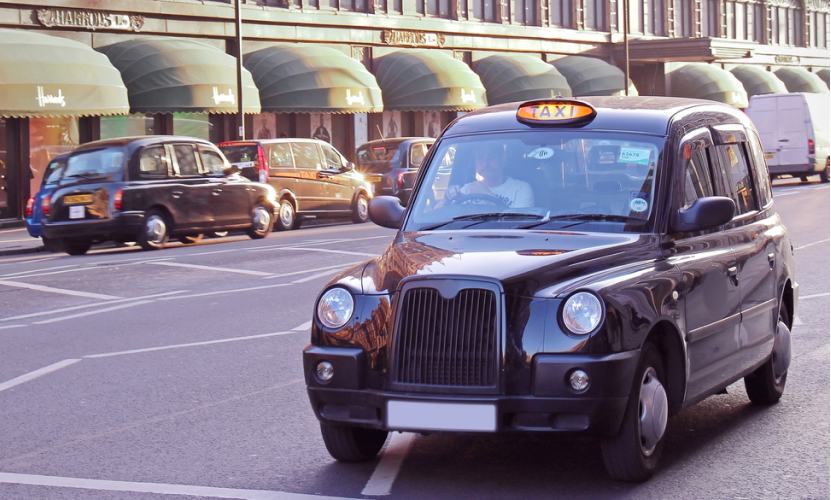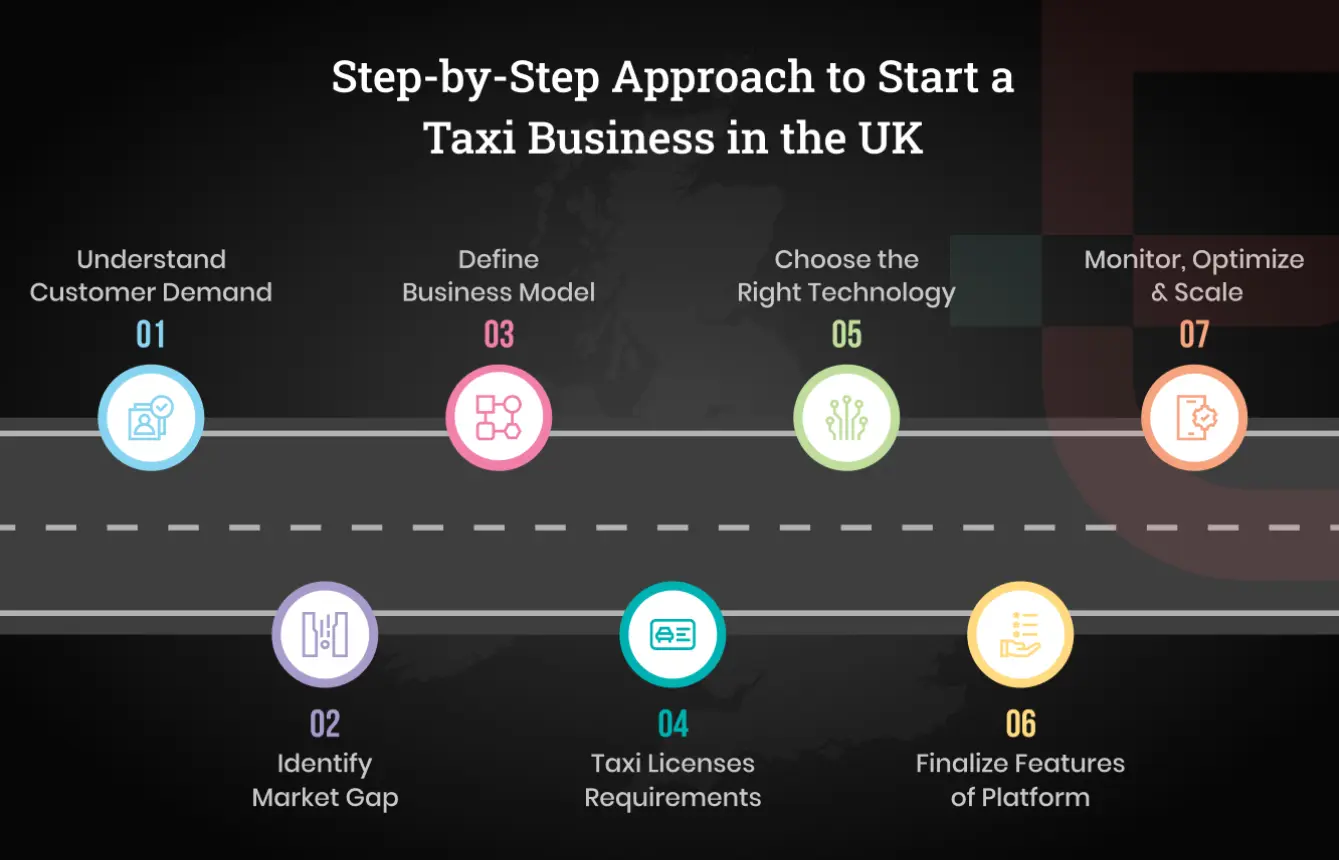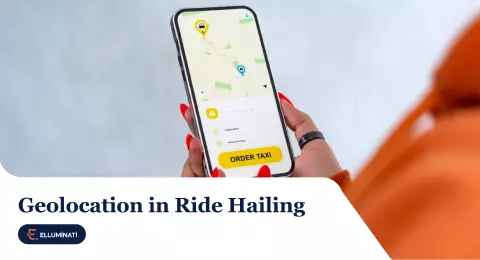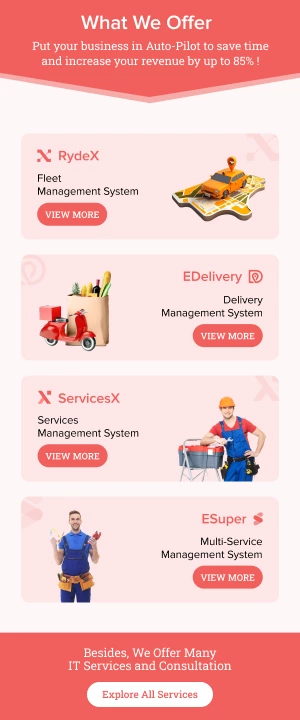
Are you wondering how to start a taxi business in UK? Then you need to think beyond just having cars on the road. The taxi business should utilize the right technology, understand local market needs, and prioritize customer needs to ensure sustainable growth.
- Essential Steps on How to Start a Taxi Booking Business in UK
- Why Start a Taxi Business in UK? – Explore the Key Advantage
- Different Types of Taxi Businesses in the UK
- Legal Requirements to Start a Taxi Booking Business in the UK
- Analyzing the UK City Zone Scope at a Glance to Start a Taxi Booking Business
- Key Competitors in the UK Taxi Market
- Conclusion
- FAQs
- How can I start an online taxi business in the UK?
- How much does it cost to build a taxi app in the UK?
- How can I ensure driver safety and reliability for my taxi business in the UK?
- What trends should I consider when starting a taxi business in the UK?
- Is it necessary to have prior experience to start a taxi business in the UK?
- Which cities in the UK are best for starting a taxi business?
With the rapid evolution of urban mobility and shifting customer expectations, entrepreneurs must build a tech-enabled business that provides convenience to customers. To turn this vision into reality, it’s essential to understand the foundational steps that shape a successful taxi venture.
This guide walks you through every layer of building a taxi business in the UK, from assessing demand to navigating regulations and leveraging technology.
Essential Steps on How to Start a Taxi Booking Business in UK
Here’s a breakdown of the essential steps that explain how to start a taxi business in UK. These points cover essential aspects of the UK’s taxi market and how to capture it with precision gradually.
Understand Customer Demand
Understanding customer demand is the first step before starting any business. Knowing customers’ pain points will help you serve a purpose instead of just being another taxi business lost in the crowd.
When it comes to the United Kingdom, cities and towns vary significantly in terms of commuting habits, peak ride hours, and customer expectations.
So, why not analyze this situation in advance and create an online taxi business tailored to customer needs?
In order to truly understand your customers, assess the following factors:
- Who will book your rides: office workers, tourists, or students?
- When do they usually need a ride: early mornings, late nights, or weekends?
- What do they care about: fast service, female drivers, or eco-friendly cars?
- How far do they typically travel: short city commutes or longer intercity trips?
- What kind of rides do they prefer: solo rides, shared rides, or family/group bookings?
- Are they price-sensitive or value-driven: do they look for the cheapest fare or premium?
These kinds of questions will help you design a service that fits directly into the customer’s lifestyle and expectations.
Here is a checklist of ways to find the answers to customer preferences:
- Talk to locals, commuters, students, & tourists of the UK
- Run online surveys via forms
- Observe taxi stands and ride-hailing usage
- Read app store reviews of the top taxi services in the UK
- Check social media and forums for feedback
- Chat with taxi drivers about rider trends
- Review public transport and city mobility data
- Use Google Trends to check local search interest
- Attend events or community meetings
- Study competitor websites and pricing
These simple steps can help you uncover real insights, so you can build a taxi service people actually want and add value to their lives.
Identify the UK Taxi Market Gap
Identifying gaps in the UK taxi market will enable entrepreneurs to help innovate services that meet customers’ core needs. It increases the chances of success by offering what people haven’t gotten yet.
For example, to identify a market gap, you can look for patterns in customers’ complaints. Are riders frustrated with long wait times in certain areas? Is there a lack of female drivers or safety features?
Define Business Model
Defining a business model to start a taxi business in the UK is a crucial step. It helps you understand what you’re creating, how it will function, and what it will need to succeed.
When you define your model, you’re deciding how you’ll serve customers, how you’ll work with drivers, and how the financial side of your business will function.
Unlike some markets, the UK has a distinct separation between hackney carriages (black cabs that can be hailed on the street) and private hire vehicles (which must be pre-booked), with local councils responsible for regulating these services.
Your business model also shapes how you work with drivers, whether you hire them, partner with independent ones, or connect existing taxi operators through your platform.
It affects how you set prices, market your service, and grow over time. These choices matter even more now, with the UK’s growing emphasis on eco-friendly ride-hailing and robust data protection.
Taxi License Requirements in the UK
Obtaining a license and ensuring legal compliance are essential for launching a taxi business in the UK. It keeps you worry-free and secure about running your taxi business.
Businesses must obtain approval from the local authority first. The rules and regulations for this differ from city to city.
As per the recent article of Forbes, if the business offers private hire bookings in the UK, it must obtain a “Private Hire Vehicle (PHV) operator license” before starting operations.
Staying compliant not only keeps your business secure but also builds trust among customers. They will be assured that they are traveling with a company that values regulations and customer safety.
Choose the Right Technology
Choosing the right technology to start a taxi business in the UK holds significant weight in operational aspects and long-term business growth.
In the UK, ride-hailing businesses like Bolt and Uber have already set the user benchmark, so customers expect top-notch features such as real-time tracking, instant bookings, and more.
If your taxi-booking service does not offer the same or a higher level of customer convenience, your business will risk being overlooked. Moreover, the right technology will also play a crucial role in a business’s operational efficiency and growth.
To implement a robust technology, decide whether to build your own system from scratch or consider reaching out to a taxi app development company that can customize a ready-made platform to your needs.
In short, your technology isn’t just a tool; it’s the backbone of the business, helping you thrive in the fast-growing mobility market.
Finalize Key Features of the Platform
Finalizing the key features for your taxi-booking business directly impacts how your business operates and how customers perceive it. To compete in the UK’s tech-savvy and saturated taxi market, you will need to integrate advanced features.
So, how to finalize the key features?
- Map the rider journey: from app launch to ride completion
- Identify rider needs at each step: booking, tracking, payment, rating
- Consider driver app requirements: alerts, earnings dashboard, navigation, and reviews
- Note admin requirements: dispatch control, analytics, support tools
- Analyze competitor apps: spot what users love and what’s missing
- Build a feature list based on: real gaps, not assumptions
- Choose essential over flashy: focus on function, speed, and simplicity
- Work with developers: familiar and experienced with UK standards
- Continuously work on improvement: gather feedback and reviews
Keeping up with customer expectations and integrating exclusive features helps you stay ahead in the market.
Monitor, Optimize & Scale
Once your taxi business is up and running in the UK, real work begins. Monitoring, optimizing, and scaling aren’t just buzzwords; they are factors that keep your business competitive.
Monitor: Begin by tracking key performance indicators (KPIs), such as ride volume, driver availability, customer satisfaction, and average wait times.
Optimize: Utilize insights to enhance the efficiency of your taxi business, which may involve adjusting the fare structure, modifying driver working hours, and implementing promotions.
Scale: Once your operations are stable and well-optimized, you can easily scale them across more regions. This will involve adding new services, such as executive cars or airport runs, or onboarding more drivers to meet the growing demand.
Leverage Our On-Demand Taxi App Script to Outpace the Competition With Tech That Moves as Smart as Your Fleet. Stay Compliant & Drive Your Taxi Business Forward
Why Start a Taxi Business in UK? – Explore the Key Advantage
From urban mobility needs to evolving consumer habits, see why the UK is a smart market for taxi ventures.
Tech-Driven Innovation: The UK’s tech-savvy audience is open to app-based booking and digital payments. This creates ample opportunity for entrepreneurs to offer modernized, tech-integrated taxi services that align with consumer expectations.
High-Density Areas: Cities like London, Manchester, Birmingham, and Glasgow have dense populations and a strong reliance on public transport. Establishing a taxi business in such areas can be financially rewarding, especially when aligned with peak travel hours and underserved zones.
Airport Transfers: With over 40 major airports, including Heathrow and Gatwick, the UK taxi market thrives on airport drop-offs and pick-ups. This niche alone offers stable income to taxi businesses due to recurring traveler demand.
Green Vehicle Adoption: The UK government is supporting eco-friendly mobility through grants and incentives for electric vehicles. Starting a taxi business with EVs not only supports sustainability but also gives you a marketing edge.
Different Types of Taxi Businesses in the UK
Explore the different types of taxi businesses that are popular in the UK market.
AI-Driven Autonomous Taxi
While not mainstream yet, some tech-forward businesses are investing in autonomous vehicle businesses. These AI-powered taxis aim to reduce the need for human drivers, cut costs, and improve safety in the long run. Areas like Milton Keynes have already seen limited autonomous trials.
Shared Taxi Services
Using route-sharing algorithms, this model enables customers to split rides going in the same direction, reducing fares and emissions. It’s a tech-savvy way to promote affordability while keeping the fleet busy.
Electric Taxi Services
As the UK moves toward its net-zero emission goals, electric taxis are gaining momentum. Entrepreneurs are now starting EV-only fleets to benefit from government subsidies, and long-term cost savings. These businesses also cater to the growing number of eco-conscious customers.
Airport Transfer Services
Specialized in transporting passengers to and from major airports, these services are in constant demand due to the UK’s busy traffic. Many customers prefer pre-booked taxis over public transport, making this a lucrative niche with high booking potential.
Legal Requirements to Start a Taxi Booking Business in the UK
Before you start an online taxi business in UK, you will need to follow the UK government’s Taxi and PHV Road Safety Act, which includes the following factors:
Get a License
- You and your drivers must hold valid taxi or PHV licenses issued by the local council.
- Each vehicle must also be licensed.
Driver Conduct Reports
As a taxi business owner in England, you’re now legally required to take driver conduct reports seriously, even if they come from other parts of the UK.
If a licensing authority in England, Wales, or Scotland raises concerns about one of your drivers, such as issues related to passenger safety or driving behavior, your local licensing authority must:
- Review the information provided.
- Decide whether to suspend or revoke the driver’s license.
- Notify the reporting authority within 20 working days, including reasons for their decision.
Follow Safety Rules
- If there are any serious concerns about a driver’s behavior (like safety or criminal issues), you must report it to the council that gave them the license.
Prevent Unsuitable Drivers
- To prevent unsuitable drivers, you will need to check the data of NR3S.
- Unsuitable drivers are those whose licenses have been canceled due to misconduct or safety concerns.
- Every time a license is revoked, the decision is uploaded to the NR3S website.
Safeguarding & Public Safety (As per the 2022 Act)
- If there are serious concerns about a driver’s conduct or safety, licensing authorities must report them to the issuing council within 10 working days.
- Councils must decide whether to suspend, revoke, or maintain a driver’s license within 20 working days of receiving a report.
Analyzing the UK City Zone Scope at a Glance to Start a Taxi Booking Business
User penetration of the taxi booking business in the UK is expected to increase by 22.8% by 2030, showing significant opportunities for entrepreneurs.
But you might have some questions, such as what cities to start with? Where are the major taxi companies that have already captured the market?
The table below answers these questions:
| City | Demand Level | Competition | Major Players | Suggested For |
|---|---|---|---|---|
| London | Very High | Very High | Uber, Bolt, Ola, FreeNow | Experienced Operators |
| Manchester | High | Moderate | Uber, Gett, Local Operators | Mid-scale Startups |
| Birmingham | High | High | Tech-Driven Launch | Uber, Bolt, Ola |
| Wolverhampton | Medium | Low | Few Local Players | Fast-Track Expansion |
| Leicester | Medium | Low | Mostly Local Operators | Testing Zone |
| Cornwall | Low-Medium | Very Low | Minimal to No Big Players | Rural Opportunity |
This table provides an approximate insight into the location of your potential market and the difficulty level of capturing the customer base across the UK. However, choosing the right city depends on your growth goals, budget, and other factors.
Key Competitors in the UK Taxi Market
Before entering the UK’s taxi business industry, it’s crucial to understand the key competitors, who have set customer expectations and primary benchmarks.
Uber
As the most recognizable ride-hailing service, Uber has a significant presence in the cities of the UK, particularly in London. The Uber business model is built on aggressive pricing and dynamic partnership strategies. Uber continues to be the primary competitor for any new entrant.
Wheely
Wheely differentiates itself by targeting the premium segment of the UK. It offers luxury vehicles and high-end customer support. Operating mainly in London, it caters to a niche but loyal customer base, making it a notable competitor for new market entries.
Bolt
Bolt offers a cost-friendly approach to customers and lower commissions for drivers, helping it expand rapidly in cities like London, Birmingham, and Manchester. Its focus on affordability makes it a challenging competitor in the UK mobility space.
Conclusion
We hope you have gained detailed insights on how to start a taxi business in UK from this blog. Launching a business in the UK is both promising and competitive. From choosing the right city to start with to ensuring compliance and selecting a tech partner, every decision is crucial.
In such a fast-moving and highly regulated market, having a reliable and scalable platform is a must to manage the taxi booking business. To accelerate your taxi business launch with ease, consider opting for our white-label taxi app, a ready-made solution you can customize to match your brand, market, and operational goals.
FAQs
To start an online taxi business in the UK, first research your target market and develop a clear business plan. Next, adopt a robust platform that seamlessly connects drivers with customers, ensuring a smooth, efficient, and user-friendly ride-hailing experience.
The cost to build a taxi app in the UK starts at £5,000. However, this depends on factors such as the complexity of the platform, its features, and the customization requirements. We recommend contacting our team to obtain a precise quote tailored to your specific business needs.
Ensure driver safety and reliability by conducting thorough background checks, verifying licenses, and providing regular training. Implement features like in-app tracking and customer feedback systems to monitor driver performance and maintain high safety standards.
Key trends include the adoption of electric vehicles (EVs), the demand for tech-enabled booking and payment systems, and the growing popularity of airport transfer services. Staying aligned with these trends helps your business remain competitive and meet evolving customer expectations in the UK.
Prior experience is helpful but not mandatory to start a taxi business in the UK. With the right market research, technology platform, and business strategy, even new entrepreneurs can successfully launch a taxi business. Partnering with a reliable taxi app development company can also simplify operations and reduce the learning curve.
Cities like London, Manchester, and Birmingham offer high demand but also face intense competition. For a more manageable entry, consider cities such as Wolverhampton, Leicester, or Cornwall, where competition is lower and there are opportunities to capture underserved markets. Your choice should align with your budget, growth goals, and target audience.









